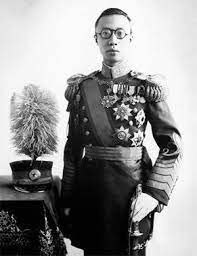Jen Cho-hsuan (4 April 1896-), Chinese Communist youth leader who severed relations with the Chinese Communist party in 1928 to launch a new career as a publisher and writer of philosophical and polemical works. After 1937 he worked to further understanding of and adherence to Sun Yat-sen's Three People's Principles. After 1950, he taught at […]











